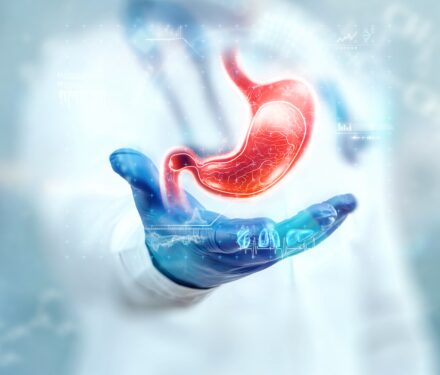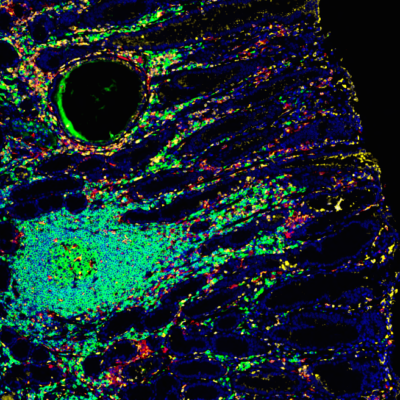Biomarker offers hope for diagnosis of early stomach cancer
By Hudson Institute communications
Scientists at Hudson Institute of Medical Research have identified a family of genes that could more accurately detect stomach cancer in its early stages to help improve survival rates.
Stomach or gastric cancer is the third leading cause of cancer death worldwide. It is caused by the abnormal growth of cells in the lining, or mucosa, of the stomach. In 2015, there were 1150 deaths from stomach cancer in Australia.
The team analysed genetic data from 900 patients from a range of settings and ethnic backgrounds, with the aim of identifying a more accurate system to classify early stomach cancer and to predict patient survival.
The study, led by Professor Brendan Jenkins, has been published in the journal Clinical Cancer Research and involved researchers, clinicians and bioinformaticians from hospitals, medical centres and research institutes. These included University of Adelaide, Kanazawa University, Shanghai Jiao Tong University, Duke-NUS Medical School and UNC-Chapel Hill.
Dr Liang Yu, a postdoctoral scientist and first author of the study, said they identified a set of genes that will help to provide clinicians with a more accurate prognosis compared with the current system used to classify these cancers.
“A patient’s prognosis largely depends on when their tumour is detected. Using these genes would greatly improve the classification of early stage tumours in terms of accuracy and sensitivity,” Dr Yu said.
“The unique genetic signature we identified measures key indicators of early stomach cancer, such as tumour invasion depth, how the cancer cells behave, the degree of malignancy and stage.
“We can use this signature to help doctors determine which patients with stomach cancer only require endoscopic treatment – a less invasive option – to avoid radical surgery, and therefore significantly improve the patient’s quality of life.
“There are cases in which some subsets of patients have potential of relapse, or metastases, where the cancer spreads to other parts of the body, despite their tumours having been clinically graded as ‘early’ stage in primary diagnosis,” he said.
Dr Yu says the marker will help with follow up monitoring of early gastric patients for any recurrence.
Contact us
Hudson Institute communications
t: + 61 3 8572 2697
e: communications@hudson.org.au
About Hudson Institute
Hudson Institute’ s research programs deliver in three areas of medical need – inflammation, cancer, women’s and newborn health. More
Hudson News
Get the inside view on discoveries and patient stories
“Thank you Hudson Institute researchers. Your work brings such hope to all women with ovarian cancer knowing that potentially women in the future won't have to go through what we have!”







